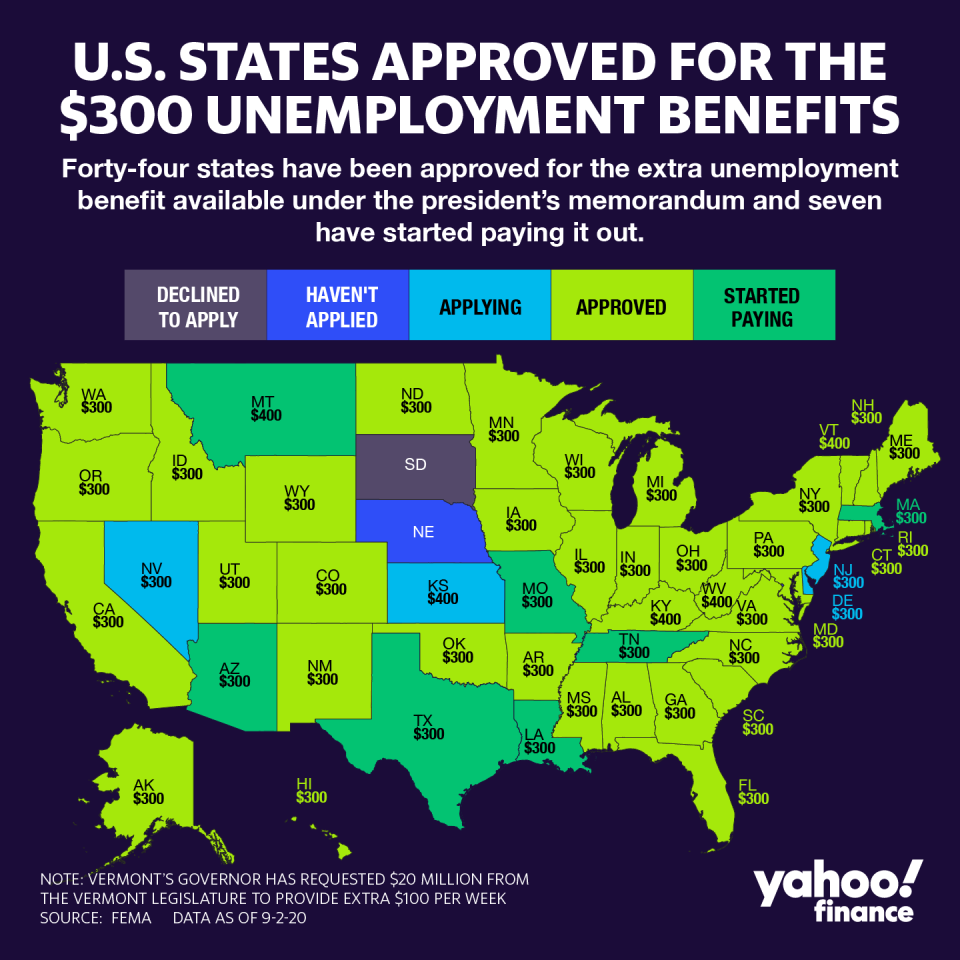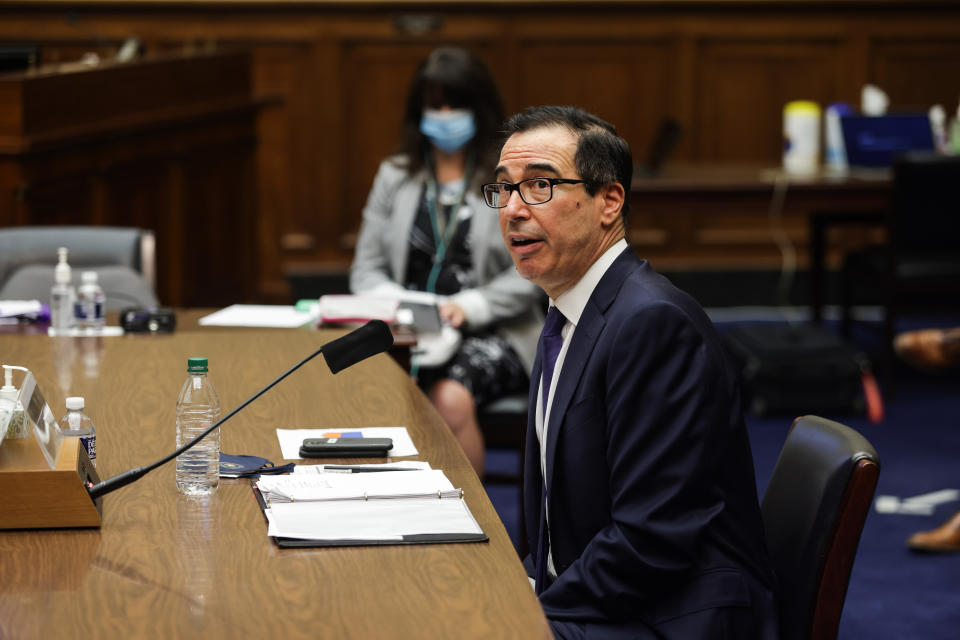Coronavirus stimulus: Extra unemployment benefits remain stalled as executive actions fail to replace negotiations
As Congress readies to reconvene next week, the spotlight returns to stalled stimulus negotiations after the president’s executive action nearly a month ago on unemployment benefits resulted in a half remedy at best.
Since signing his memorandum on Aug. 8, only seven of the 44 states approved for the Lost Wages Assistance Program (LWA) have started distributing the extra $300 or $400 in benefits to the 27 million jobless Americans receiving unemployment insurance.
Read more: Here’s what you need to know about unemployment benefits eligibility
Other problems exist, too, including future funding and stricter eligibility requirements that have limited the effectiveness of the memorandum and underscore the need for a larger effort.
“Nearly a month later, we've got six to seven states paying out,” Michele Evermore, a senior policy analyst at the National Employment Law Project told Yahoo Money. “It's really just best if Congress gets back to the table as soon as possible.”

‘It was very damaging to the negotiations in Congress’
Treasury Secretary Steven Mnuchin this week reiterated his support for more unemployment benefits.
“We’d like to extend enhanced unemployment and we’d like to send out more economic impact payments,” Mnuchin said during a hearing on the coronavirus crisis on Tuesday. “Those have both been critical to the economic recovery.”
But Congressional negotiations on the next stimulus package have been on hold since mid-August when Congress went into recess. While negotiations are expected to begin after Labor Day, Republicans and Democrats still disagree on how much the next package should be worth and on the future of key provisions — including unemployment benefits.
So far, Republicans proposed extra benefits of $200 a week through September and then ultimately transitioning to unemployment benefits that replace only 70% of wages, while Democrats support reinstating the $600 weekly bonus from the CARES Act.

The president’s memorandum has also slowed down the negotiations, according to Andrew Stettner, an unemployment insurance expert and senior fellow at the Century Foundation, a think tank. That gave the GOP cover to leave for recess without coming to an agreement.
“It was very damaging to the negotiations in Congress,” he told Yahoo Money. “It was clearly a half measure, it did allow them to say they did something. They were able to leave town and stop negotiating, for now, a month.”
‘An act of Congress would fix everything immediately’
As unemployed workers wait to see what further aid — if any — they might receive under a new relief package, they are left with the limited assistance from Trump’s memorandum for now.
The handful of states that have started distributing extra benefits are about to exhaust or have already exhausted the initial funding they got. Under FEMA guidelines, approved states received enough money to give recipients “an initial obligation of three weeks of needed funding.” Any extra after that is decided on a week-by-week basis until the funds deplete.
Another issue with the FEMA funds is that they aren’t just for funding the unemployment benefits; they also fund disaster relief, meaning they could run out sooner than expected.
“Now we, unfortunately, don’t have unlimited amounts of money that we can do that,” Mnuchin said on Tuesday, “but the president wanted to move forward.”
Under the LWA program, states can choose to pay an extra $100 on top of the $300 in extra benefits from the federal government, making the distribution of benefits unequal throughout the country. South Dakota declined the extra federal $300 benefit altogether.
Read more: Coronavirus stimulus checks: What’s stopping a second round of payments?
Additionally, close to 1 million out-of-work Americans don’t qualify for the extra benefits because they don’t meet the minimum set by the LWA program. Those who currently get less than $100 a week in unemployment benefits aren’t eligible for the extra benefits.
These holes make it necessary for Congress to do something beyond the president’s actions, experts said.
“An act of Congress would fix everything immediately,” Evermore said. “And it would equalize everything, almost immediately.”
Denitsa is a writer for Yahoo Finance and Cashay, a new personal finance website. Follow her on Twitter @denitsa_tsekova.
Read more:
Analysis: 1 in 3 jobless Americans could be left out of Trump's action on unemployment
Even as GDP tanked, personal income grew thanks to government support
Read more personal finance information, news, and tips on Cashay
Follow Yahoo Finance on Twitter, Facebook, Instagram, Flipboard, SmartNews, LinkedIn, YouTube, and Reddit.

 money
money 

